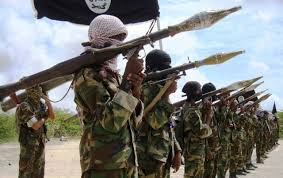By Akanimo Sampson
Apparently worried that links between Boko Haram and other Islamist groups could further intensify regional security concerns, the Muhammadu Buhari administration is currently hoping to seal a military technical pact with Russia in a bid to crush the menacing Jihadists’ uprising.
Nigerian diplomats in Russia say the deal is expected to be sealed later this month when President Buhari meets his Russian counterpart, Vladimir Putin, for talks on a military technical cooperation pact to fight the Boko Haram militants.
After the group pledged allegiance to the Islamic State in March 2015, the United States boosted its military assistance and deployed 300 troops to Nigeria in an effort to help in the fight against Boko Haram. As the largest African oil producer, the stability of Nigeria is important to regional security and US economic interests.
Analysts have always maintained that Nigeria’s ongoing battle with insurgent groups, and continued corruption in government, threaten the stability and political integrity of Africa’s most populous state.
Since 2011, Boko Haram, one of the largest Islamist militant groups in Africa, has conducted terrorist attacks on religious and political groups, local police, and the military, as well as indiscriminately attacking civilians in busy markets and villages.
The kidnapping of over two hundred girls from their school in April 2014 drew international attention to the ongoing threat from Boko Haram and the government’s inability to contain it. Following negotiations between Boko Haram and the Nigerian government, brokered by the International Committee for the Red Cross, 103 girls have since been released.
President Buhari, a former military dictator was elected in 2015 on a counter-terrorism platform, but economic and political challenges in Nigeria have complicated the fight against Boko Haram. In addition to the military conflict, continuing uneven distribution of oil revenue, high levels of corruption, and violence in the Middle Belt region pose significant challenges to Nigerian security.
It seems, after a peak in Boko Haram–related violence in 2014 and 2015, the number of casualties attributed to the group fell dramatically. The Nigerian security forces with assistance from Benin, Cameroon, Chad, and Niger, have pushed Boko Haram out of several provinces in the North-East axis, but the group retains control over some villages and pockets of territory and continues to launch deadly suicide attacks and abduct civilians, mostly women and children.
In February 2018, more than 100 students were kidnapped by a faction of Boko Haram known as Islamic State West Africa. They were released a little more than a month later.
The conflict has been primarily contained in the Muslim North, particularly in Borno State, but has displaced millions of people in the region. In June 2018, the Nigerian Army announced that two thousand internally displaced people were to return home.
Security forces combating the militants have also been accused of severe human rights abuses.
Buhari is however, billed to meet Putin on the sidelines of a Russia-Africa summit in the Black Sea city of Sochi amid a push by Moscow to expand its influence in Africa.
In an interview with Russia’s RIA news agency, the Nigerian Ambassador, Steve Ugbah, said “We’re sure that with Russian help we’ll manage to crush Boko Haram, given Russia’s experience combating Islamic State in Syria,’’ adding that Nigeria is interested in purchasing Russian helicopters, planes, tanks and other military equipment.
Ugbah said a military technical cooperation deal between Russia and Nigeria had already been drafted and that it only needed to be finalised. Reuters quoted him as saying, “we hope President Buhari can take the talks to their logical end … The agreement will open new possibilities in such areas as the supply of military equipment and training for specialists.’’

